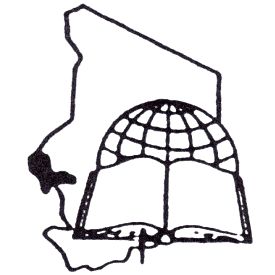Simeon's Land
1 Simeon was the second tribe chosen to receive land, and the region for its clans was inside Judah's borders. 2-6 In one region of Simeon's tribal land there were the following 13 towns with their surrounding villages:
Beersheba, Shema, Moladah, Hazar-Shual, Balah, Ezem, Eltolad, Bethul, Hormah, Ziklag, Beth-Marcaboth, Hazar-Susah, Beth-Lebaoth, and Sharuhen.
7 In another region, Simeon had the following four towns with their surrounding villages:
Enrimmon, Tachan, Ether, and Ashan.
8 Simeon's land also included all the other towns and villages as far south as Baalath-Beer, which is also called Ramah of the South.
9 Simeon's tribal land was actually inside Judah's territory. Judah had received too much land for the number of people in its tribe, so part of Judah's land was given to Simeon.
Zebulun's Land
10-12 Zebulun was the third tribe chosen to receive land. The southern border for its clans started in the west at the edge of the gorge near Jokneam. It went east to the edge of the land that belongs to the town of Dabbesheth, and continued on to Maralah and Sarid. It took in the land that belongs to Chislothtabor, then ended at Daberath.
The eastern border went up to Japhia 13 and continued north to Gath-Hepher, Ethkazin, and Rimmonah, where it curved toward Neah 14 and became the northern border. Then it curved south around Hannathon and went as far west as Iphtahel Valley.
15 Zebulun had twelve towns with their surrounding villages. Some of these were Kattath, Nahalal, Shimron, Jiralah, and Bethlehem.
16 This is the tribal land, and these are the towns and villages of the Zebulun clans.
Issachar's Land
17-23 Issachar was the fourth tribe chosen to receive land. The northern border for its clans went from Mount Tabor east to the Jordan River. Their land included the following 16 towns with their surrounding villages:
Jezreel, Chesulloth, Shunem, Hapharaim, Shion, Anaharath, Debirath, Kishion, Ebez, Remeth, En-Gannim, Enhaddah, Beth-Pazzez, Tabor, Shahazumah and Beth-Shemesh.
Asher's Land
24-26 Asher was the fifth tribe chosen to receive land, and the region for its clans included the following towns:
Helkath, Hali, Beten, Achshaph, Allammelech, Amad, and Mishal.
Asher's southern border ran from the Mediterranean Sea southeast along the Shihor-Libnath River at the foot of Mount Carmel, 27 then east to Beth-Dagon. On the southeast, Asher shared a border with Zebulun along the Iphtahel Valley. On the eastern side their border ran north to Beth-Emek, went east of Cabul, and then on to Neiel, 28 Abdon, Rehob, Hammon, Kanah, and as far north as the city of Sidon. 29-31 Then it turned west to become the northern border and went to Ramah and the fortress-city of Tyre. Near Tyre it turned toward Hosah and ended at the Mediterranean Sea.
Asher had a total of 22 towns with their surrounding villages, including Mahalab, Achzib, Acco, Aphek, and Rehob.
Naphtali's Land
32-34 Naphtali was the sixth tribe chosen to receive land. The southern border for its clans started in the west, where the tribal lands of Asher and Zebulun meet near Hukkok. From that point it ran east and southeast along the border with Zebulun as far as Aznoth-Tabor. From there the border went east to Heleph, Adami-Nekeb, Jabneel, then to the town called Oak in Zaanannim, and Lakkum. The southern border ended at the Jordan River, at the edge of the town named Jehudah. Naphtali shared a border with Asher on the west.
35-39 The Naphtali clans received this region as their tribal land, and it included 19 towns with their surrounding villages. The following towns had walls around them:
Ziddim, Zer, Hammath, Rakkath, Chinnereth, Adamah, Ramah, Hazor, Kedesh, Edrei, Enhazor, Iron, Migdalel, Horem, Beth-Anath, and Beth-Shemesh.
Dan's Land
40-46 Dan was the seventh tribe chosen to receive land, and the region for its clans included the following towns:
Zorah, Eshtaol, Ir-Shemesh, Shaalabbin, Aijalon, Ithlah, Elon, Timnah, Ekron, Eltekeh, Gibbethon, Baalath, Jehud, Azor, Beneberak, Gath-Rimmon, Mejarkon, and Rakkon.
Dan's tribal land went almost as far as Joppa. 47-48 Its clans received this land and these towns with their surrounding villages.
Later, when enemies forced them to leave their tribal land, they went to the town of Leshem. They attacked the town, captured it, and killed the people who lived there. Then they settled there themselves and renamed the town Dan after their ancestor.
Joshua's Land
49-51 The Israelites were still gathered in Shiloh in front of the sacred tent, when Eleazar the priest, Joshua, and the family leaders of Israel finished giving out the land to the tribes. The Lord had told the people to give Joshua whatever town he wanted. So Joshua chose Timnath-Serah in the hill country of Ephraim, and the people gave it to him. Joshua went to Timnath-Serah, rebuilt it, and lived there.
V. 1-9: cf. 1 Ch 4:24-33. Jos 15:21-32. Ge 49:7.
1 La seconde part échut par le sort à Siméon, à la tribu des fils de Siméon, selon leurs familles. Leur héritage était au milieu de l’héritage des fils de Juda. 2 Ils eurent dans leur héritage: Beer-Schéba, Schéba, Molada, 3 Hatsar-Schual, Bala, Atsem, 4 Eltholad, Bethul, Horma, 5 Tsiklag, Beth-Marcaboth, Hatsar-Susa, 6 Beth-Lebaoth et Scharuchen, treize villes, et leurs villages; 7 Aïn, Rimmon, Éther, et Aschan, quatre villes, et leurs villages; 8 et tous les villages aux environs de ces villes, jusqu’à Baalath-Beer, qui est Ramath du midi. Tel fut l’héritage de la tribu des fils de Siméon, selon leurs familles. 9 L’héritage des fils de Siméon fut pris sur la portion des fils de Juda; car la portion des fils de Juda était trop grande pour eux, et c’est au milieu de leur héritage que les fils de Siméon reçurent le leur.
V. 10-16: cf. (Ge 49:13. De 33:18, 19.)10 La troisième part échut par le sort aux fils de Zabulon, selon leurs familles. 11 La limite de leur héritage s’étendait jusqu’à Sarid. Elle montait à l’occident vers Mareala, et touchait à Dabbéscheth, puis au torrent qui coule devant Jokneam. 12 De Sarid elle tournait à l’orient, vers le soleil levant, jusqu’à la frontière de Kisloth-Thabor, continuait à Dabrath, et montait à Japhia. 13 De là elle passait à l’orient par Guittha-Hépher, par Ittha-Katsin, continuait à Rimmon, et se prolongeait jusqu’à Néa. 14 Elle tournait ensuite du côté du nord vers Hannathon, et aboutissait à la vallée de Jiphthach-El. 15 De plus, Katthath, Nahalal, Schimron, Jideala, Bethléhem. Douze villes, et leurs villages. 16 Tel fut l’héritage des fils de Zabulon, selon leurs familles, ces villes-là et leurs villages.
V. 17-23: cf. (Ge 49:14, 15. De 33:18, 19.)17 La quatrième part échut par le sort à Issacar, aux fils d’Issacar, selon leurs familles. 18 Leur limite passait par Jizreel, Kesulloth, Sunem, 19 Hapharaïm, Schion, Anacharath, 20 Rabbith, Kischjon, Abets, 21 Rémeth, En-Gannim, En-Hadda, et Beth-Patsets; 22 elle touchait à Thabor, à Schachatsima, à Beth-Schémesch, et aboutissait au Jourdain. Seize villes, et leurs villages. 23 Tel fut l’héritage de la tribu des fils d’Issacar, selon leurs familles, ces villes-là et leurs villages.
V. 24-31: cf. (Ge 49:20. De 33:24, 25.)24 La cinquième part échut par le sort à la tribu des fils d’Aser, selon leurs familles. 25 Leur limite passait par Helkath, Hali, Béthen, Acschaph, 26 Allammélec, Amead et Mischeal; elle touchait, vers l’occident, au Carmel et au Schichor-Libnath; 27 puis elle tournait du côté de l’orient à Beth-Dagon, atteignait Zabulon et la vallée de Jiphthach-El au nord de Beth-Émek et de Neïel, et se prolongeait vers Cabul, à gauche, 28 et vers Ébron, Rehob, Hammon et Kana, jusqu’à Sidon la grande. 29 Elle tournait ensuite vers Rama jusqu’à la ville forte de Tyr, et vers Hosa, pour aboutir à la mer, par la contrée d’Aczib. 30 De plus, Umma, Aphek et Rehob. Vingt-deux villes, et leurs villages. 31 Tel fut l’héritage de la tribu des fils d’Aser, selon leurs familles, ces villes-là et leurs villages.
V. 32-39: cf. (De 33:23.)32 La sixième part échut par le sort aux fils de Nephthali, selon leurs familles. 33 Leur limite s’étendait depuis Héleph, depuis Allon, par Tsaanannim, Adami-Nékeb et Jabneel, jusqu’à Lakkum, et elle aboutissait au Jourdain. 34 Elle tournait vers l’occident à Aznoth-Thabor, et de là continuait à Hukkok; elle touchait à Zabulon du côté du midi, à Aser du côté de l’occident, et à Juda; le Jourdain était du côté de l’orient. 35 Les villes fortes étaient: Tsiddim, Tser, Hammath, Rakkath, Kinnéreth, 36 Adama, Rama, Hatsor, 37 Kédesch, Édréï, En-Hatsor, 38 Jireon, Migdal-El, Horem, Beth-Anath et Beth-Schémesch. Dix-neuf villes, et leurs villages. 39 Tel fut l’héritage de la tribu des fils de Nephthali, selon leurs familles, ces villes-là et leurs villages.
V. 40-48: cf. (Ge 49:16, 17. De 33:22.) Jg 18.40 La septième part échut par le sort à la tribu des fils de Dan, selon leurs familles. 41 La limite de leur héritage comprenait Tsorea, Eschthaol, Ir-Schémesch, 42 Schaalabbin, Ajalon, Jithla, 43 Élon, Thimnatha, Ékron, 44 Eltheké, Guibbethon, Baalath, 45 Jehud, Bené-Berak, Gath-Rimmon, 46 Mé-Jarkon et Rakkon, avec le territoire vis-à-vis de Japho. 47 Le territoire des fils de Dan s’étendait hors de chez eux. Les fils de Dan montèrent et combattirent contre Léschem; ils s’en emparèrent et la frappèrent du tranchant de l’épée; ils en prirent possession, s’y établirent, et l’appelèrent Dan, du nom de Dan, leur père. 48 Tel fut l’héritage de la tribu des fils de Dan, selon leurs familles, ces villes-là et leurs villages.
La ville de Thimnath-Sérach accordée à Josué
V. 49-51: cf. Jos 14:6-15. Éz 45:7, Éz 8.49 Lorsqu’ils eurent achevé de faire le partage du pays, d’après ses limites, les enfants d’Israël donnèrent à Josué, fils de Nun, une possession au milieu d’eux. 50 Selon l’ordre de l’Éternel, ils lui donnèrent la ville qu’il demanda, Thimnath-Sérach, dans la montagne d’Éphraïm. Il rebâtit la ville, et y fit sa demeure. 51 Tels sont les héritages que le sacrificateur Éléazar, Josué, fils de Nun, et les chefs de famille des tribus des enfants d’Israël, distribuèrent par le sort devant l’Éternel à Silo, à l’entrée de la tente d’assignation. Ils achevèrent ainsi le partage du pays.

